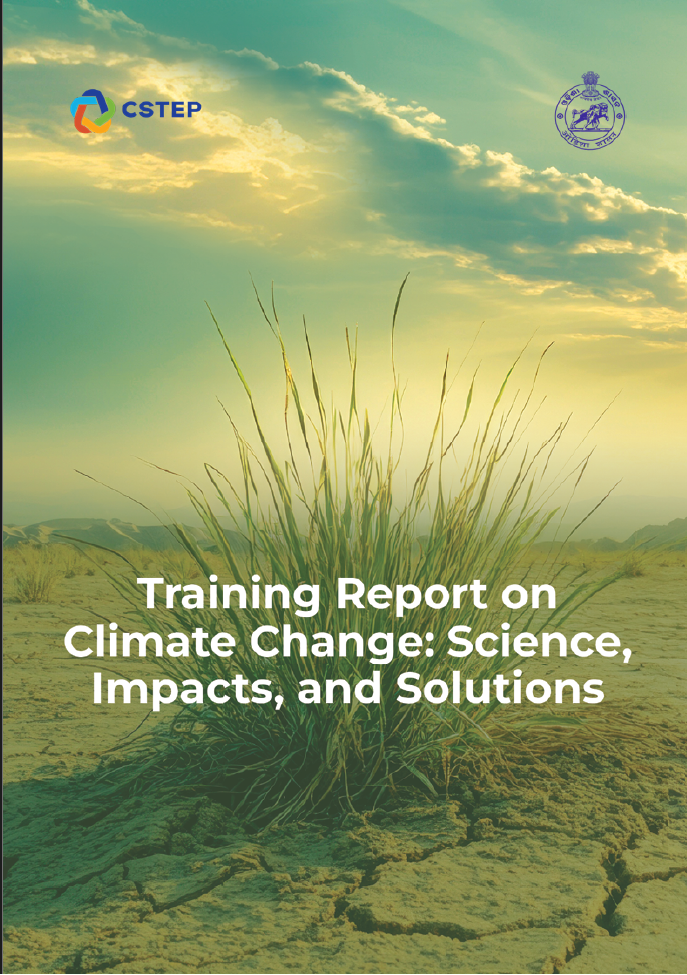The report summarises the outcomes of a training programme held from 7 to 12 April 2025 at the State Institute of Training and Extension (SITE) in Bhubaneswar. The training aimed to build a foundational understanding among stakeholders regarding the science of climate change, its current and projected impacts, and potential adaptation and mitigation strategies.
The programme presented diverse topics, such as the greenhouse effect at global, national, and local levels; regional climate projections; climate hazards; and vulnerability and its impacts on various areas, including ecosystem and biodiversity, human health, infrastructure, vulnerable communities, water resources, and agriculture and allied sectors. The training stressed on evidence-based, climate-smart solutions. To connect the science with policy action, interactive discussions were held and case studies with real-world examples were presented.
The programme had a diverse group of participants from various directorates, divided into 3 batches, each comprising 33 participants. Participants expressed strong appreciation for the training’s content, quality of facilitation, and relevance. The key areas of interest that they highlighted are climate risk assessment, sectoral impacts, sustainable land and water management practices, adaptation and mitigation strategies, and integration of climate resilience into locally led adaptation planning in agriculture and allied activities.
This training represented a vital step towards fostering a more climate-aware and responsive stakeholder ecosystem. Furthermore, the programme highlighted the need for continuous capacity building, inter-institutional collaboration, and grassroots engagement to promote scalable and sustainable climate action. The knowledge and insights gained from such initiatives can enable integrating climate change considerations into planning and implementation, particularly in vulnerable regions such as Odisha.

